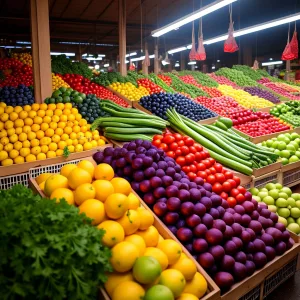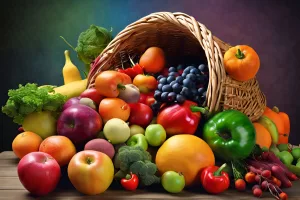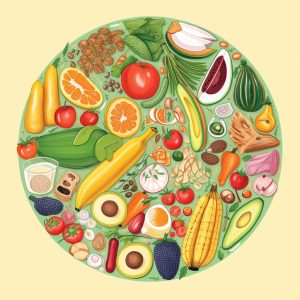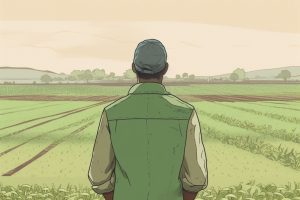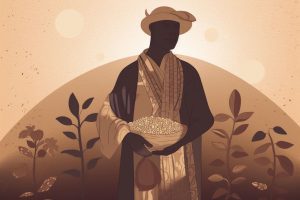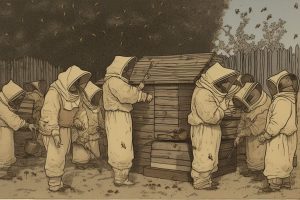Africa’s cold chain is a special system of refrigerated storage and transport that keeps food fresh from farms to people’s tables. It stops nearly half of fresh food from spoiling, helping farmers earn more and feeding millions across the continent. At the GCCA Africa Conference 2025 in Durban, leaders shared bold ideas using solar power, AI, and blockchain to fix old problems and bring cold storage to rural areas. This cool network not only saves food but also creates jobs, grows economies, and opens doors to global markets. Africa’s cold chain is becoming a powerful force to fight hunger and build a brighter future for all.
South Africa’s farms and fresh produce markets face big problems like broken roads, power cuts, and trade troubles that threaten the food supply. Leaders, including Minister Steenhuisen, are pushing to fix these issues by improving roads, modernizing markets with digital tools, and making rules simpler. They are also working to find new buyers around the world to keep exports strong. Despite challenges, the heart of South African agriculture beats with hard work, hope, and teamwork to keep the nation fed and growing.
South Africa is fighting the food waste crisis with creative community projects, education, and new policies. Even though the country produces a lot of food, nearly a third is wasted while many people still face hunger. This waste not only harms the environment but also deepens social divides. To tackle this problem, South Africa is encouraging smarter food use, better distribution, and a shift in how people think about food. By working together, the nation hopes to reduce waste and ensure everyone has enough to eat.
The Lingomso ‘Our Future’ project and the Noluntu Soup Kitchen are two initiatives in Khayelitsha that are helping to foster creativity in children and fight hunger in the community. The Lingomso project uses art to empower students, helping them to develop problemsolving skills and a sense of environmental consciousness. The Noluntu Soup Kitchen ensures no one goes hungry by repurposing food waste into compost for a community garden and providing nourishing meals. These initiatives are investing in a brighter, more sustainable future for everyone.
Seed 2 Harvest is an innovative program in Cape Flats, South Africa, that aims to tackle local hunger problems by enabling residents to plant and grow their own food gardens, thus promoting selfsufficiency. The program provides households with comprehensive home starter kits containing everything they require to start their journey towards selfsustainability, provided they meet strict eligibility requirements. The ultimate goal is to generate a surplus of organically grown vegetables, significantly alleviating food insecurity in the community. This initiative is a true testament to the power of community resilience and selfempowerment.
As World Sandwich Day nears, the annual Sarmiethon Challenge, spearheaded by humanitarian organization Ladles of Love, aims to give out an impressive 90,000 sandwiches to those in need with the help of companies, volunteers, and the public. This event not only serves as an inspiring teambuilding exercise for participating organizations but also significantly enhances the lives of the less privileged.
During the recent budget vote presentations in the North West Province, three major departments outlined their proposals for the upcoming financial year. ### Department of Economic Development, Environment, Conservation, and Tourism
FoodForward SA (FFSA), a registered nonprofit organization, has launched the Mother and Child Nutrition Programme in Khayelitsha, Cape Town, to tackle the critical issue of malnutrition in young children. The initiative, in partnership with the Philani Nutrition Centre, focuses on the first 1,000 days of a child’s life, a period crucial for physical and cognitive development.
South Africa’s agricultural sector must undergo transformation and evolution to redress the historical injustice of the Native Land Act and ensure economic growth, social wellbeing, and environmental sustainability. This article explores the necessary steps to revitalize the agricultural sector, including investments in underutilized communal lands, enhancing rural economies, tackling climate change, empowering previously disadvantaged farmers, and leveraging technology for rural development.
Loadshedding has become a significant issue in South Africa, particularly during winter when more power is required from the national grid. These planned power outages have raised concerns about food security in the country, with the retail and agriculture industries fearing possible food shortages due to the impact of loadshedding on their operations and logistics.
Seed sovereignty is a crucial issue facing smallscale farmers and communities in Africa. The Last Seed is a timely and important film that explores the impact of seed patenting on farmers and their livelihoods. This article will discuss the film’s key themes and its call to action for sustainable agriculture.
Honeybees play a vital role in maintaining the health of the planet’s ecosystem. They are responsible for pollinating a third of the food we eat, including fruits, vegetables, and nuts. However, honeybees are facing numerous threats, such as habitat loss, pesticides, climate change, and disease, which have contributed to the decline in bee populations.


